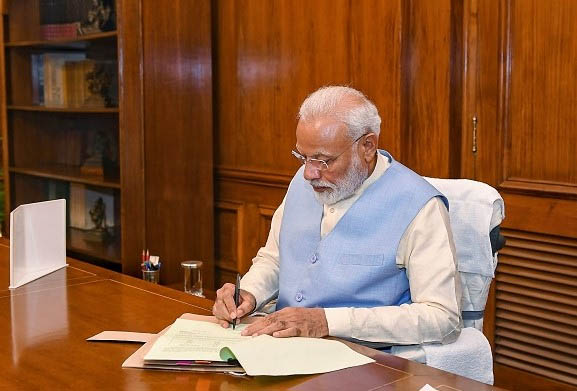Nitya Chakraborty
As 2024 comes to a close, India stands poised to embrace the New Year 2025, with Prime Minister Narendra Modi and his senior PMO and external affairs officials feeling optimistic about forthcoming advancements in Indian diplomacy. Modi is politically encouraged following the BJP’s substantial victories in recent assembly elections in Maharashtra and Haryana, as well as in by-elections in Uttar Pradesh. However, his significant relief stems from the anticipated appointment of PIO Kashyap Patel as the FBI Director under the Trump administration.
Just six weeks prior, the PMO and South Block experienced anxiety when news broke of Canadian agencies intercepting communications involving Indian officials regarding an alleged plot to assassinate Sikh extremist lawyer S P Pannun. Canadian ministers and officials even dared to mention Home Minister Amit Shah. Furthermore, US sources indicated they had access to this information, suggesting collaboration among the ‘Five Eyes’ intelligence partners, particularly directed by the U.S. The external affairs ministry faced immense challenges in managing the situation, particularly in navigating the Western media.
However, the landscape shifted dramatically following the November 5 U.S. presidential elections, with Narendra Modi’s ally Donald Trump emerging victorious. As a result, the Canadian government moderated its allegations. Prime Minister Justin Trudeau, who has had a contentious relationship with Trump dating back to his first term, realized the need to temper the accusations against India in light of the new political climate. If Trump’s preferred candidate Kash Patel assumes the role of FBI Director, India can anticipate a reduction in the allegations made by Canada, as well as potential actions against Sikh extremists in Canada in the upcoming year.
Kashyap Patel, known as ‘Kash’, is the son of Gujarati parents and a devout Hindu who was integral to Trump’s agenda during his first term. All intelligence gathered within the United States is vetted by the FBI, while the CIA deals with international operations. Should Kash take over as FBI director, he will possess the authority to analyze and oversee intelligence information pertinent to allegations concerning India.
This prospect brings considerable relief to the PMO and South Block. Additionally, there is promising news regarding Bangladesh. The South Block has received clear insights into the South Asia policy trends of the incoming Trump administration. In response, the Indian government has adjusted its approach toward Sheikh Hasina, who has been in exile in India since August 5 of this year. It has been four months since her arrival in India.
Initially, Hasina was active in issuing statements from her residence in India. However, following the interim Bangladeshi government’s strong objections, the Indian government requested that she refrain from making public statements. Now, with the changing circumstances, Hasina has been allowed to assert herself, contravening the request from the Dr. Yunus-led Bangladeshi government. Earlier this week, she made a very strong statement to a gathering of Awami League supporters via digital media, accusing Dr. Yunus of orchestrating the events leading up to August 5.
There are indications that she intends to re-engage actively and will strive to rally the Awami League supporters, both within Bangladesh and among the substantial Awami League diaspora, particularly in the UK and USA. This shift in India’s stance likely came after receiving a nod from President-elect Trump’s South Asian advisers.
Regarding Dr. Muhammad Yunus, he has taken Sheikh Hasina’s challenge seriously and is increasingly anxious about Trump assuming the presidency, given his reputation as a ‘Hillary man’. Immediately, he convened a three-day meeting of various political factions to address what he referred to as ‘National Unity’. He has already initiated dialogues with student groups and political parties, and will meet with religious group leaders on December 4, including Hindu representatives.
Dr. Yunus is under immense pressure from his advisory factions, particularly from BNP and student groups, leading to conflicting advice indicating divergent strategies. Some Hindu groups have taken a more assertive stance recently, inciting fundamentalist Muslim factions to become more aggressive. In reality, the recent attacks against Hindus are less about their religious identity and more about their affiliation with the Awami League.
Indian foreign policy experts are optimistic that even if the Yunus administration endures post-Trump’s inauguration, the Bangladeshi government may be more receptive to India’s position. A meeting between India and Bangladesh at the foreign secretary level is anticipated in Dhaka on December 10. Should the Indian foreign secretary visit Dhaka, he will have the opportunity to gauge the prevailing political climate in Bangladesh. However, no significant decisions are expected at this moment, as both India and Bangladesh await the commencement of Trump’s second term on January 20.


Leave a Reply